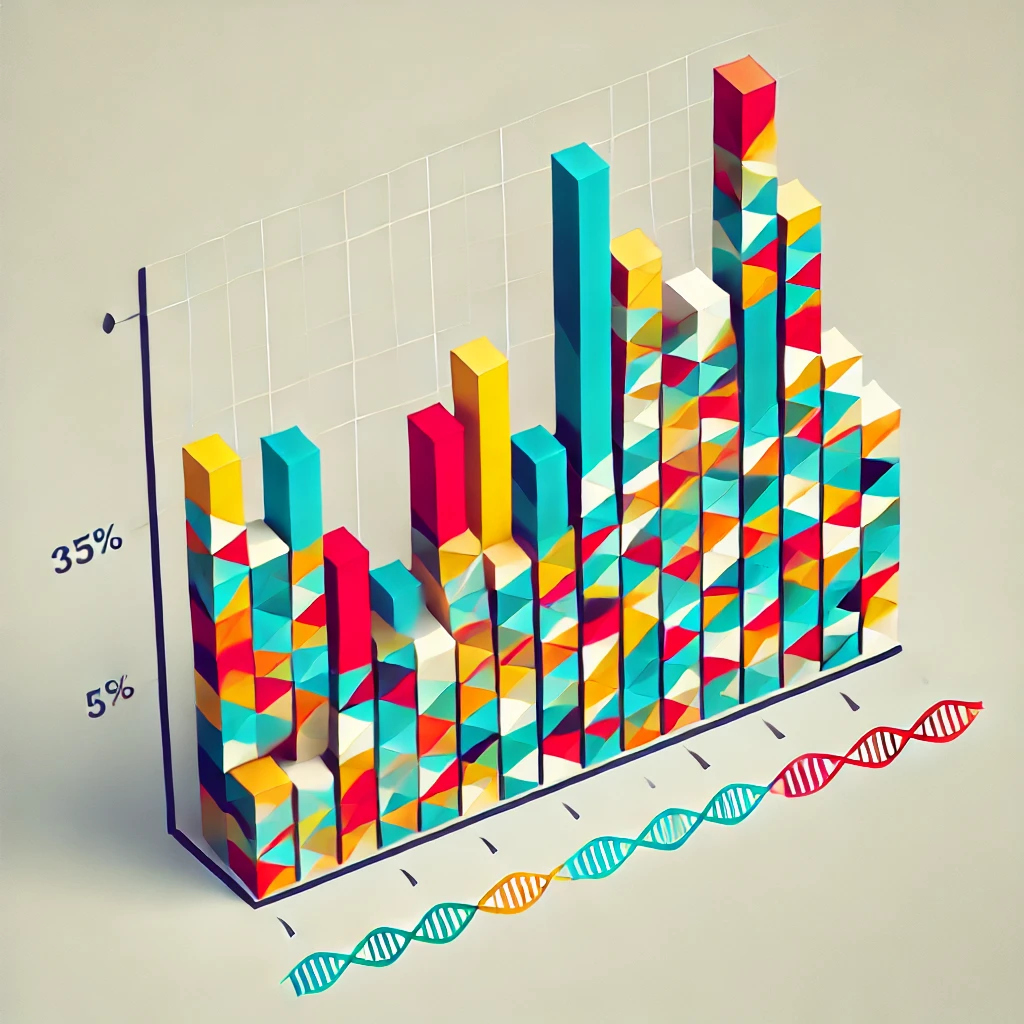Check out our ancestry reports. www.dnagenics.com

Siblings can have different DNA ancestry results for several reasons:
- Random Inheritance: Each person inherits 50% of their DNA from their mother and 50% from their father, but the specific segments of DNA that are inherited can vary. This random assortment of DNA can result in differences in the ancestral markers that are detected in DNA tests.
- Recombination: During the formation of eggs and sperm, a process called recombination occurs. This process shuffles the genetic material, creating unique combinations of DNA in each sibling. As a result, even full siblings can inherit slightly different segments of DNA from their parents.
- Ancestral Variation: Ancestral markers used in DNA ancestry tests are based on reference populations and databases. These databases are not comprehensive, and they may not include all possible ancestral groups or may have limited representation of certain populations. As a result, differences in test results can occur if one brother has DNA from an ancestral group not well-represented in the database.
- Genetic Mutations: Over time, new genetic mutations can occur in a family lineage. These mutations may not be passed down to all siblings in the same way, leading to differences in their DNA test results.
- Testing Companies and Algorithms: Different DNA testing companies may use different algorithms, reference populations, and databases for their ancestry tests. These variations can lead to differences in results when siblings test with different companies or at different times.
- Genetic Drift: Small random changes in allele frequencies can happen over generations due to genetic drift, especially in small populations. These changes can lead to differences in ancestral markers detected in siblings’ DNA.
It’s important to note that while brothers can have different DNA ancestry results, they still share a significant amount of genetic material and common ancestry. The differences in their results are typically due to the random nature of genetic inheritance and the limitations of DNA testing technology and databases.
Check out our ancestry reports. www.dnagenics.com





